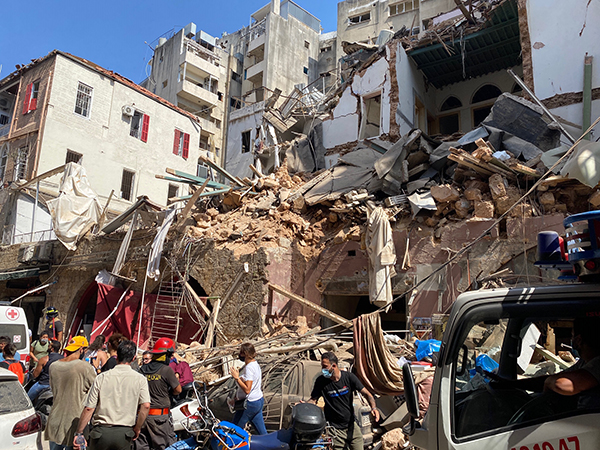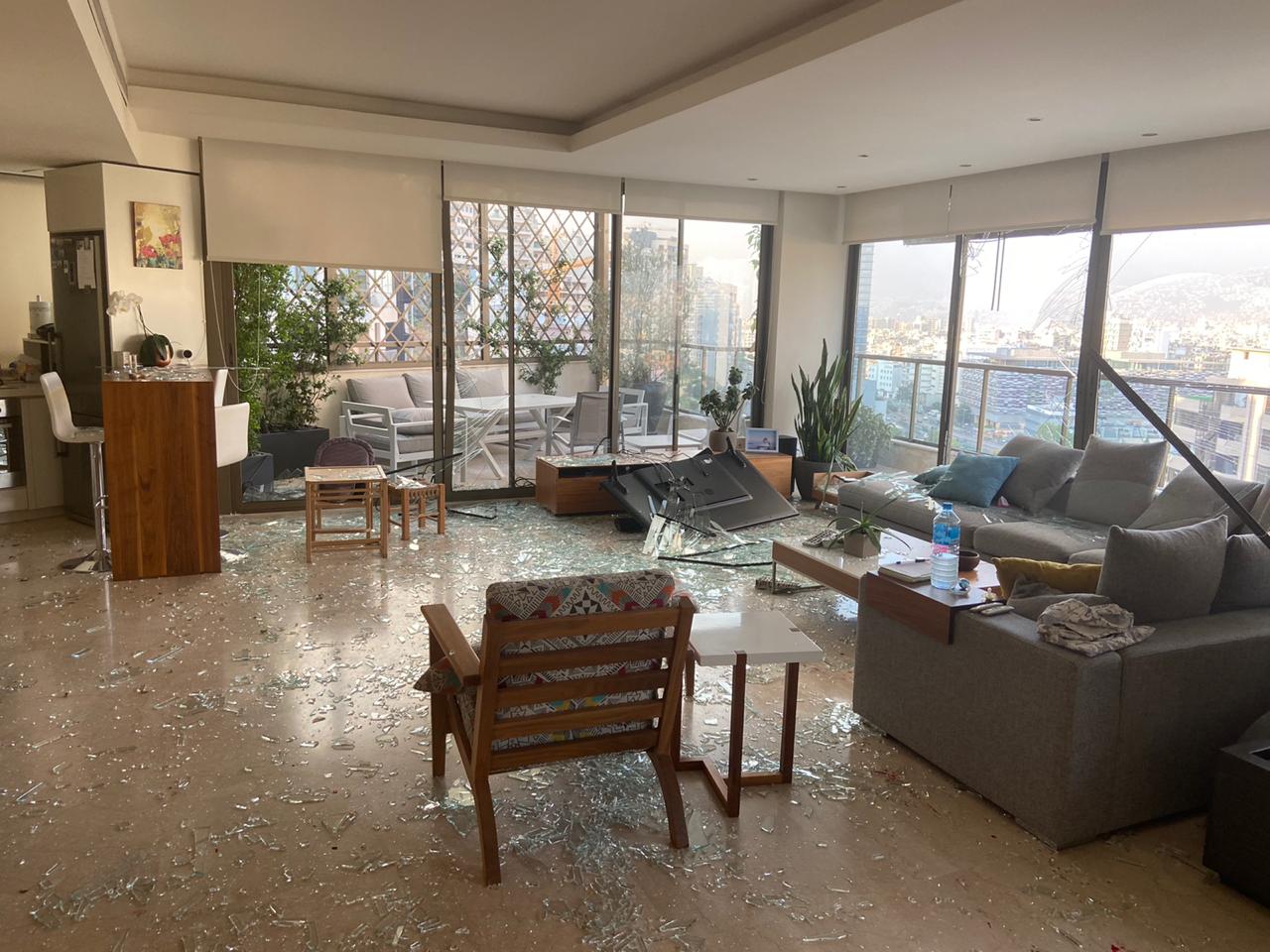
WINDSOR TERRACE — The explosion in Beirut that killed more than 100 people and injured thousands of others left religious leaders and Lebanese community activists here shaken and searching for answers.
Bishop Gregory Mansour of the Eparchy of St. Maron of Brooklyn, said a prayer service and collection is being organized for the victims. “The best way to help Lebanon is to get on our knees,” he told The Tablet.
The prayer service will take place on Tuesday, Aug. 25, at Our Lady of Lebanon Maronite Cathedral, 113 Remsen St. in Brooklyn Heights, at 7 p.m. Brooklyn is home to a large Maronite Catholic community.
Several relief efforts are underway — Catholic News Service published a list of places where donations could be made:
- Catholic Near East Welfare Association, a Vatican agency: https://cnewa.org/campaigns/lebanoncrisis/
- Caritas Internationalis, the umbrella organization for Catholic charitable agencies such as Catholic Relief Services, Development and Peace, CAFOD: www.caritas.org/2020/08/explosions-in-beirut/
- Aid to the Church in Need, a pontifical foundation:
https://www.churchinneed.org/beirut-acn-offers-emergency-food-aid/ - Malteser International, relief agency of the Sovereign Order of Malta: www.malteser-international.org/en/donation.html
- Jesuit Refugee Service: https://www.jrsusa.org?form=lebanonresponse
In the hours after the explosion, Lebanese people in Brooklyn frantically called, texted, and emailed friends and loved ones in Beirut to find out if they were okay and if their homes were still standing.
The blast took place in a building in the port of Beirut on Aug. 4, destroying much of the port and causing a giant mushroom cloud to balloon over the city. The explosion produced the power of a 3.5 magnitude earthquake, that could be felt from miles away, and its force flattened buildings, destroyed cars, and shattered glass throughout the area. Approximately 300,000 Lebanese were displaced from homes.
At press time, the official tally was 137 dead and 5,000 injured but those numbers are expected to rise because many people are missing.
The official cause of the blast has not been determined but the building where the explosion took place appeared to have a large amount of ammonium nitrate — that had been kept there since 2014 — according to government officials in Lebanon.
“There were 2,700 tons of ammonium nitrate in those buildings. It should not have been stored there,” said Dalia Tarabay, a Lebanese activist who lives in New York. “The bomb that blew up the federal building in Oklahoma City (in 1995) had two tons. This was not an accident. This was a crime of neglect by the Lebanese government. We need the international community to investigate.”
Lebanon is going to need billions of dollars in humanitarian assistance and economic aid, according to advocates, who pointed out that the country was already in bad shape due to ongoing political turmoil, the devaluation of its currency, and COVID-19.
“The past nine months have not been easy and now this. I hope the U.S. government will send humanitarian aid,” said John Abi-Habib, an honorary consul for Lebanon and CEO of MSI Net Inc. in Bay Ridge.
Abi-Habib, who lives in New Jersey, said he’s concerned about shortages of food and other necessities. The blast leveled a grain silo near the port, leaving Lebanon with less than a month’s worth of grain reserves.
Lebanon’s ability to engage in trade and commerce is also uncertain.
“The blast did more than destroy buildings. It destroyed the port of Beirut. Ships cannot dock there. I don’t know what will happen to commerce. Things can’t be delivered,” Abi-Habib said.
Firas Abu Hamzeh was driving in Beirut with his girlfriend at the time of the explosion.
“The car jumped two or three meters,” he told The Tablet.
Abu Hamzeh saw buildings collapsing and glass flying everywhere. “It looks like a war zone here,” he said. “A friend of mine had injuries. I took him to the hospital but it wasn’t easy. Not all of the routes are open. I got my friend to the hospital. But there were so many patients, the hospital closed their doors.”

In the hours after the blast, Abu Hamzeh and some friends tried to enter the worst-hit parts of the city to help victims but they were turned back by the military: “I think rightly so. The areas were too unstable. It was not safe,” he explained.
Bishop Mansour immediately knew something was wrong that day when his phone lit up with text messages.
“One priest told me his brother had left the location just before the blast. People who were 10 miles away could feel it,” he said.
Many things that had been plaguing Lebanon before the explosion are suffering even more post-blast.
The electrical grid in Lebanon was problematic even before the explosion, according to Tarabay, who said most areas of the country have electricity for only four hours a day.
“Doctors are operating by flashlight,” she said.
Maronite Catholics and others are praying that Lebanon can get back on its feet.
“Lebanon is a unique place,” Bishop Mansour said. “It’s a place where Christians and Muslims have found conviviality.”
